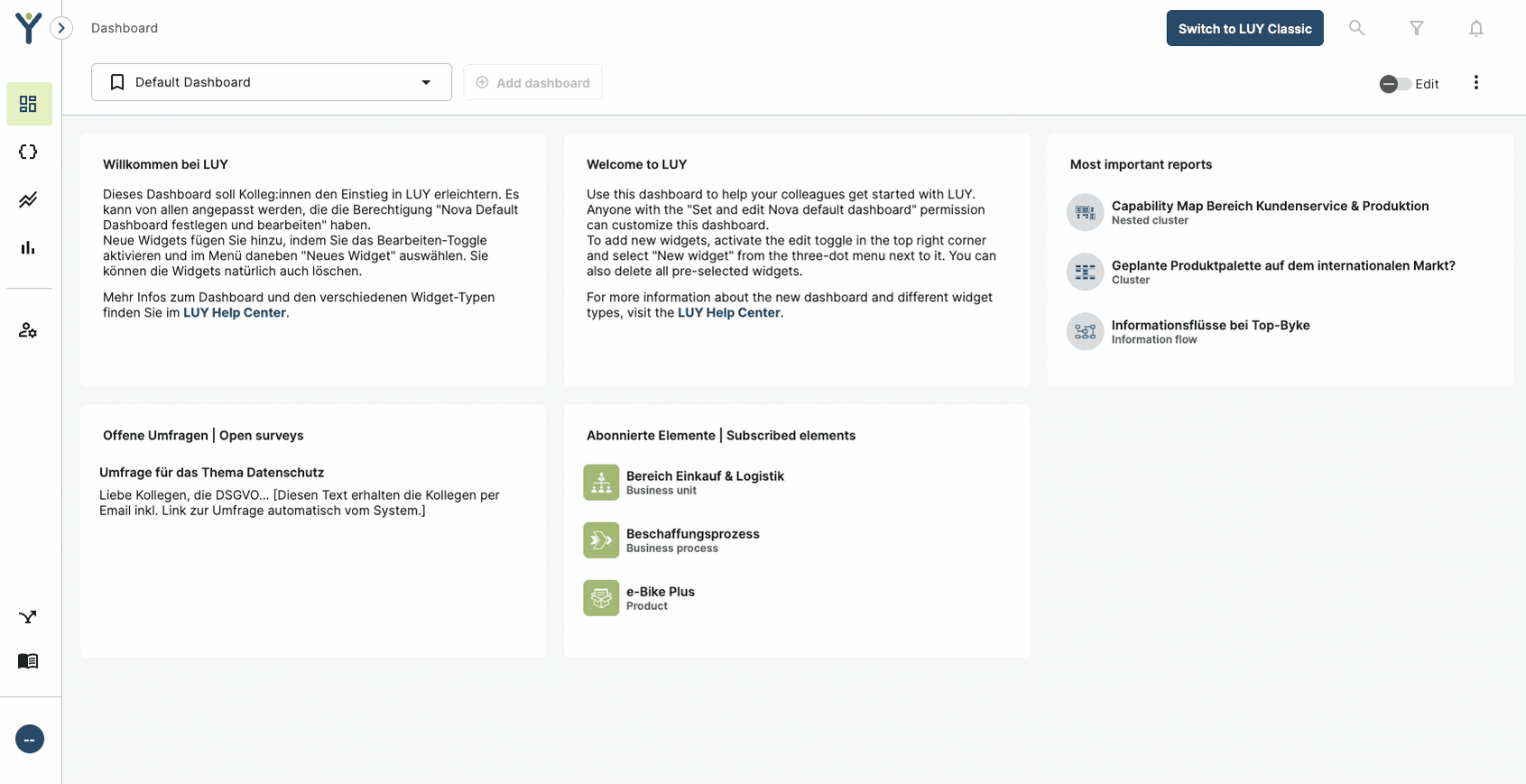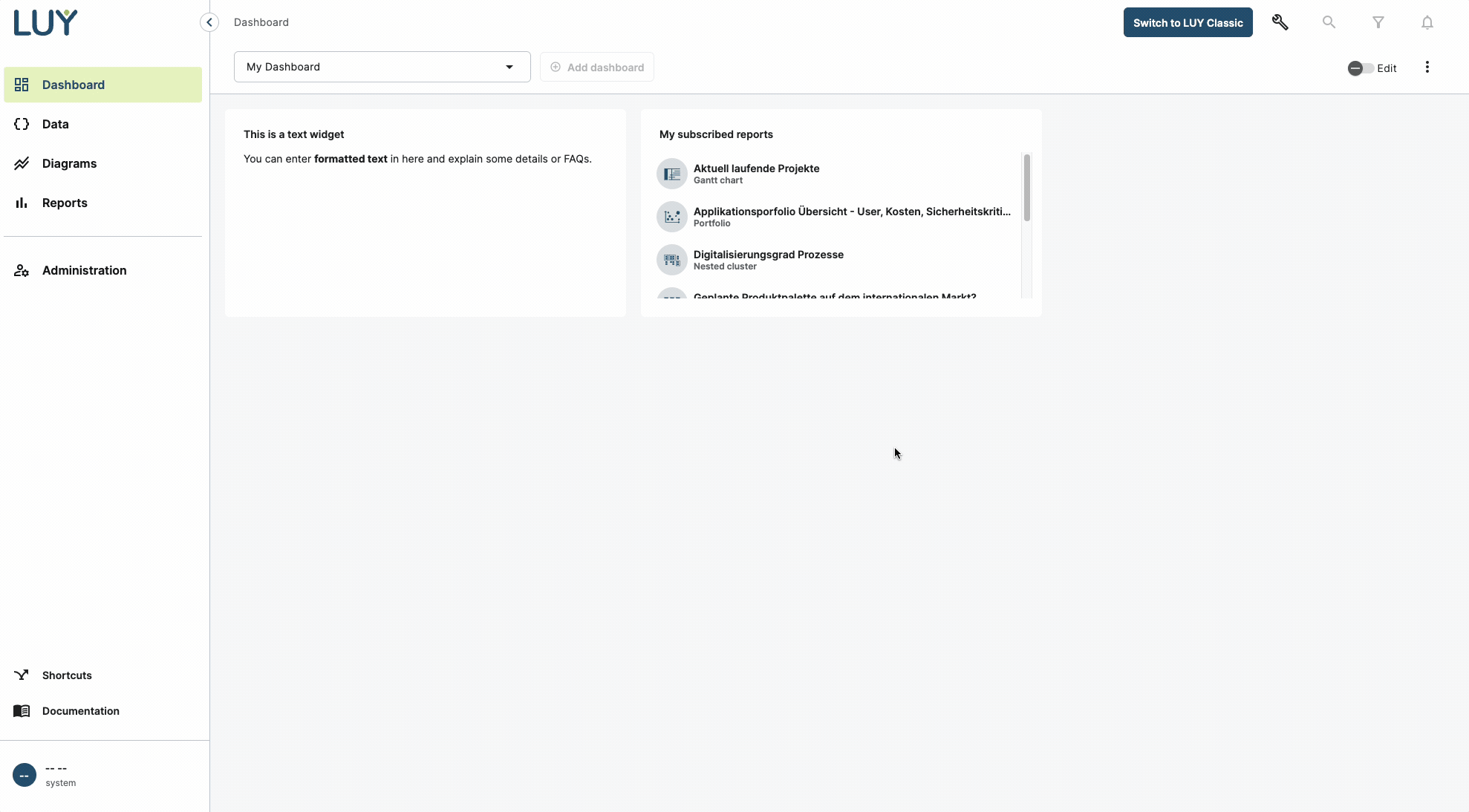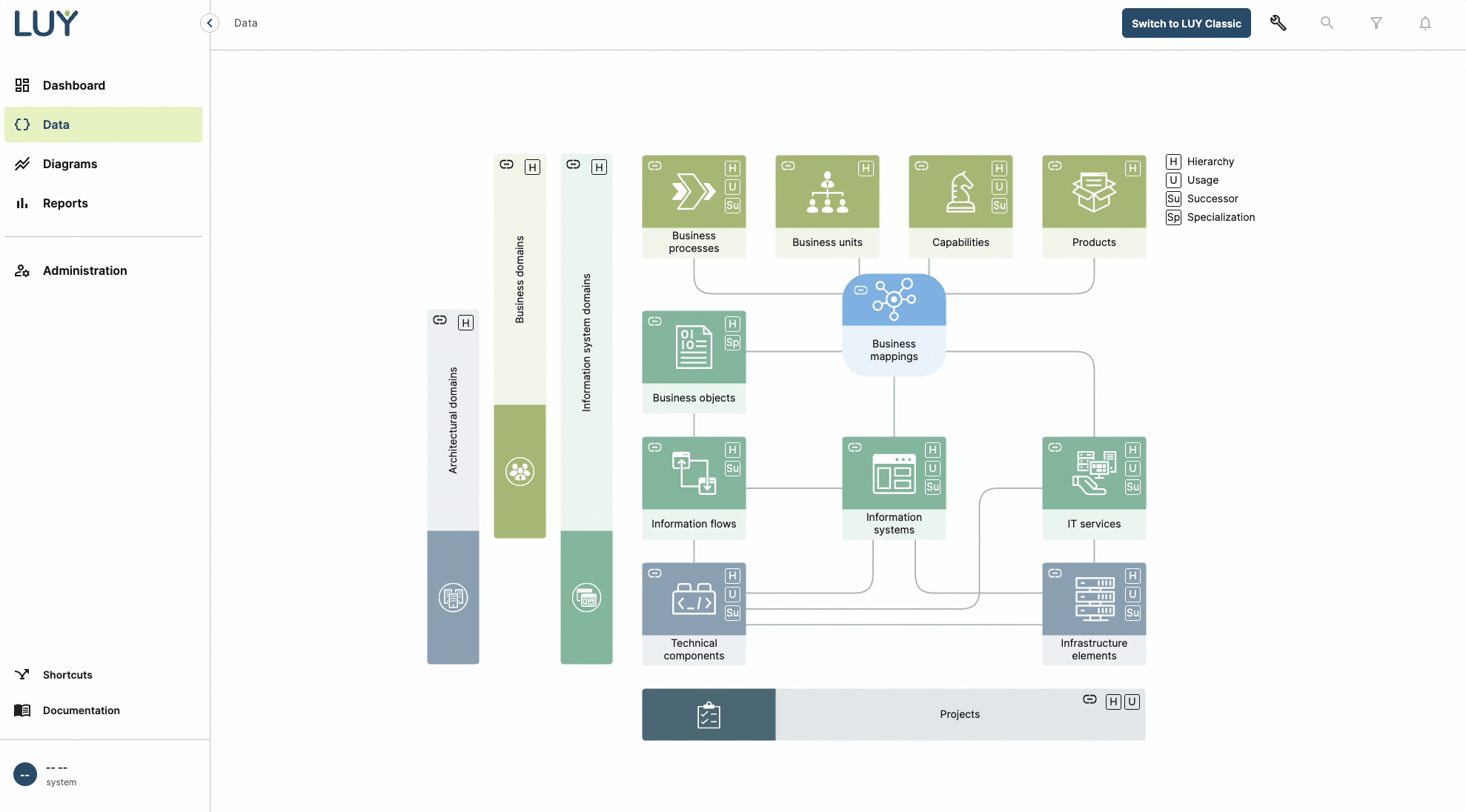Dashboard
The LUY Nova dashboard is your personal and organizational starting point into LUY Nova. It provides quick access to relevant information, streamlines navigation, and supports onboarding by offering curated content in a central location.

Dashboard types: default and personal
There are two types of dashboards in LUY Nova:
1. Default dashboard (system-wide)
The default dashboard is a shared view, visible to all users in the LUY Nova frontend. It serves as a starting point when opening LUY Nova for the first time or when no personal dashboard is present.
It is pre-configured by LUY but can be customized by users with the proper permissions.
The default dashboard contains:
A welcome text (available in German and English)
A set of helpful widgets like open surveys, subscribed elements, and subscribed reports
It cannot be deleted.
Only users with the permission “Set and edit Nova default dashboard” can customize it.
Once edited, the default dashboard is overridden with the new content and saved for all users.
Note: The permission “Use custom dashboard” (from LUY Classic) is not related to the Nova dashboard. Managing or editing the Nova dashboard requires a separate, dedicated permission.
2. Personal dashboard (user-specific)
In addition to the shared default, each user can create one personal dashboard.
The personal dashboard is private and only visible to the user who created it.
It can be fully customized using widgets, layout adjustments, and titles.
Once created, it becomes available in the dashboard dropdown.
If a personal dashboard is deleted, a new one can be created.
The option to create more than one personal dashboard may become available in future LUY editions.
By design, users are currently limited to one personal dashboard. This is intended to align with product roadmap priorities and licensing models.
Dashboard widgets: overview and usage
Dashboards are built using widgets – small blocks that display key information or content. Each widget is tailored to a specific use case.

Available widget types
Widget type | Description |
|---|---|
Text | Freeform markdown content. Ideal for instructions, onboarding text, or links. |
Report group | Displays grouped reports based on shared tags set at reports (e.g., “Security”, “Strategy”). |
Subscribed reports | Shows all reports the user is subscribed to. Users manage subscriptions via the reports list or in the report itself. |
Subscribed elements | Lists all elements the user is subscribed to. |
Open surveys | Displays open surveys assigned to the user. Clicking them opens LUY Classic, where surveys are for now processed. |
Important behavior:
All widgets respect user access rights. Content the user is not authorized to view will not be displayed.
Widgets are laid out in a 3-column grid and adjust responsively based on screen size.
Widgets can be rearranged using drag & drop when edit mode is active.
Customizing a dashboard
Accessing the dashboard
Open LUY Nova.
The Dashboard is the first item in the side navigation menu.
You will see either:
The default dashboard, if no personal dashboard exists, or
Your personal dashboard, if one was created.
Entering edit mode
Use the toggle switch in the top right corner to enable edit mode.
In edit mode, you can:
Add new widgets via the three-dot menu → "New widget"
Rearrange widgets with drag & drop
Edit widget content (text, titles, filters)
Delete widgets
Rename the dashboard

Note: When switching between dashboards, the edit mode is automatically turned off. If switching to an empty dashboard, edit mode is turned on by default.
🔐 Permissions and access control
Action | required permission |
|---|---|
View dashboard | Available to all LUY Nova users |
Edit personal dashboard | No special permission needed |
Create personal dashboard | No permission needed; one per user allowed |
Edit default dashboard |
|
Delete default dashboard | Not allowed |
Delete personal dashboard | Allowed |
The LUY Nova dashboard is a completely separate feature from the “custom dashboard” available in LUY Classic. Permissions for the Nova dashboard are not connected to the Classic dashboard feature.
